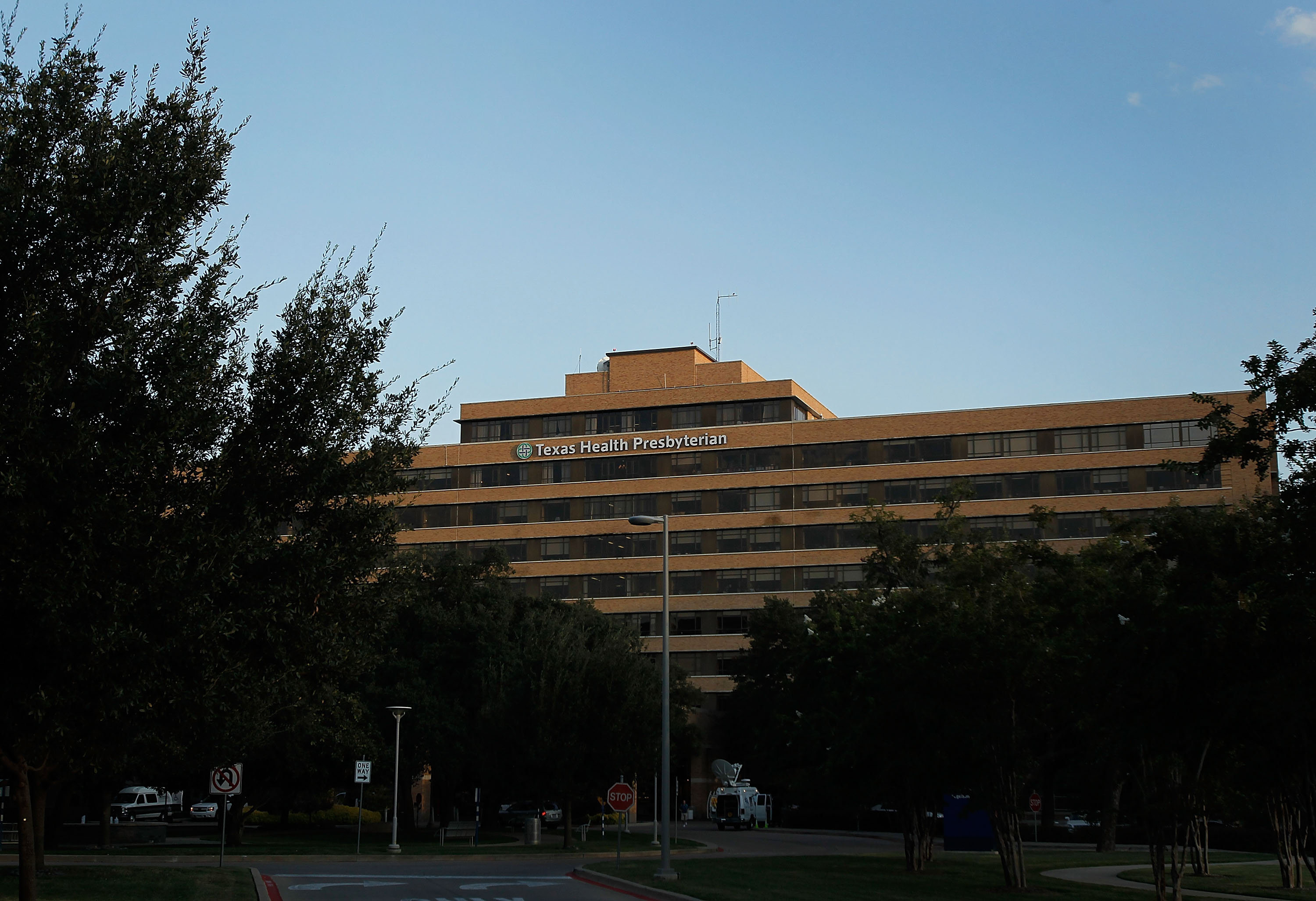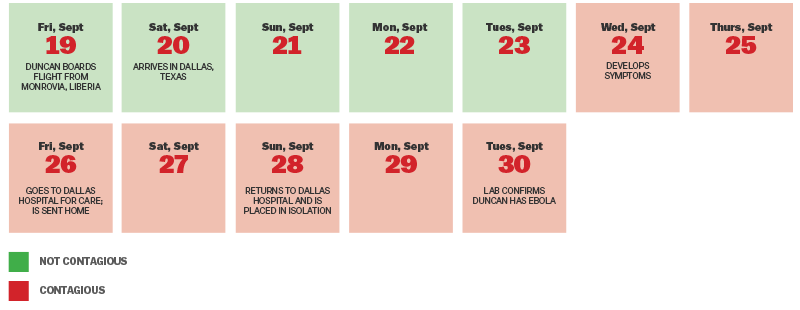Thomas Eric Duncan, The First Patient Diagnosed With Ebola In The US Has Died
The first person to be diagnosed with Ebola within the US has died, Texas hospital officials have said.
On Wednesday, 8 October, Thomas Eric Duncan, the patient with the first case of Ebola diagnosed in the United States and the Liberian man at the center of a widening public health scare, died in isolation at Texas Health Presbyterian Hospital hospital
Duncan died at 7:51 a.m. at Texas Health Presbyterian Hospital, more than a week after the virus was detected in him on Sept. 30. His condition had worsened in recent days to critical from serious as medical personnel worked to support his fluid and electrolyte levels, crucial to recovery in a disease that causes bleeding, vomiting and diarrhea.
He was being kept in isolation and receiving experimental drugs
For just over a week, Duncan remained in intensive care and isolation at the hospital, where his condition had worsened from serious to critical. This weekend, he had been "fighting for his life," according to the Centers for Disease Control and Prevention (CDC) director Tom Frieden, on dialysis and a respirator.
 vox.com
vox.com
He had also received the experimental antiviral drug brincidofovir, which the Food and Drug Administration approved for emergency use. On October 8 at 7:51 a.m., more than a week after he was diagnosed, he died.
 vox.com
vox.com
Texas Health Presbyterian Hospital, where he was being treated, released this statement:
After he arrived at the Dallas/Fort Worth International Airport on 20 September, Duncan set off a chain of events that raised questions about health officials' preparedness to detect and contain the deadly virus
His case spread fear and anxiety among those he encountered, however briefly, and turned the places, vehicles and items he touched into biohazardous sites that were decontaminated, dismantled, stored or, in some cases, incinerated.
Duncan went to the airport in Liberia on Sept. 19 for his flight to the United States, landed in Dallas the next day and first went to the emergency room at Texas Health Presbyterian Hospital feeling ill on Sept. 25. He was released by the hospital, which had failed to view him as a potential Ebola case for reasons that remain unclear. He returned there and was admitted Sept. 28 after his condition worsened.
On this first hospital visit, Duncan's sister said a nurse was informed that Duncan had come from Liberia. This should have raised flags about his disease. But this vital information "was not fully communicated throughout the full team," said Mark C. Lester, executive vice president of the health-care system that includes Texas Health Presbyterian. In other words, hospital staff missed an opportunity to diagnose Duncan, get him into care, and also stop Duncan from spreading the virus while he was contagious.
 vox.com
vox.com
By September 28, Duncan — who is 42 and recently quit his job in Monrovia as a driver for a shipping company — had fallen gravely ill. He was sent to Texas Presbyterian in an ambulance. This time, hospital staff suspected Ebola.
 vox.com
vox.com
Duncan was visiting family in Texas when his symptoms appeared in late September. Earlier in the month, he had assisted a woman in Liberia who later died of Ebola.
According to The New York Times, Duncan had probably contracted the virus in Liberia from his landlord's daughter who was sick with Ebola — Duncan had helped bring her to the hospital (and she later died). It's not yet clear whether Duncan knew he had been exposed when he boarded the plane in Monrovia, though the CDC confirmed that his temperature had been checked at the time and he was not running a fever.
 vox.com
vox.com
In the meantime, the Centers for Disease Control and Prevention (CDC) still says it can contain any US outbreak
"It is certainly possible that someone who had contact with [Duncan]... could develop Ebola in the coming weeks," said the CDC's Frieden. Still, he added: "I have no doubt we will stop this in its tracks in the US. I also have no doubt as long as this continues in Africa, we need to be on guard."
 vox.com
vox.com
Local, state and federal officials have expressed confidence that they have been able to limit the spread of the disease in Dallas and said that none of the people they were monitoring had shown any symptoms of Ebola.



